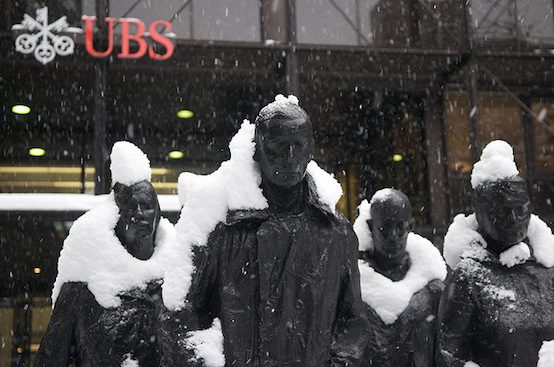Was he free? Was he happy? The question is absurd.

Here’s a puzzling report from the New York Times:
A recent report from UBS Wealth Management found that people with more money are generally happy, which probably doesn’t come as much of a shock. “I would say that millionaires in general are very happy,” said Paula Polito, chief client strategy officer at UBS Wealth Management Americas. “I wouldn’t confuse happiness with contentment or satisfaction or achievement.”
Got it. Happy but not necessarily satisfied or content.
The UBS report found that satisfaction rose in line with wealth: 73 percent of those with $1 million to $2 million, 78 percent of those with $2 million to $5 million and 85 percent of those with over $5 million reported that they were “highly satisfied” with life.
Oh. So they are satisfied. Satisfied and happy? Satisfied and happy but not content?
What piqued my curiosity was how conflicted the report’s respondents seemed to be about the source of their wealth. They often have jobs that entail long hours, high pressure and working vacations.
Are those things satisfying? Happiness-conducive?
‘Part of this pressure to keep going is less about greed and more about insecurity that might be self-imposed,’ Ms. Polito said. ‘If you ask people, ‘If you knew you had five more years to live, would you act differently?’ they say they would. That’s a showstopper.’
Happy and satisfied but insecure?
Money buys happiness, the report said. But what good is that happiness if the millionaires who have it cannot enjoy the freedom the money gives them, the freedom that most people would love to have?
But if the inability to enjoy freedom doesn’t make you less happy or satisfied, is it a problem? If so, why?
My takeaway from reading this article: no one involved, from the investigators to the respondents to the reporter, has any idea what they mean by “happy” or “satisfied” or “content” or “free.”
Let’s try to think about these things, starting perhaps with W. H. Auden’s poem “The Unknown Citizen.” Everyone’s assignment: read this poem, think about it for a month, and then try again.
Alan Jacobs is a Distinguished Professor of the Humanities in the Honors Program at Baylor University in Waco, Texas, and the author most recently of The Book of Common Prayer: A Biography.
Comments